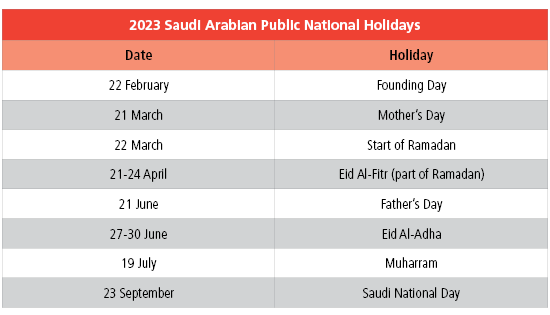 Saudi Arabia, officially known as the Kingdom of Saudi Arabia, is a country located in the Middle East on the Arabian Peninsula. It is the largest country in the Middle East, covering an area of approximately 2.15 million square kilometers (830,000 square miles). It shares borders with several countries including Bahrain, Iraq, Jordan, Kuwait, Oman, Qatar, the United Arab Emirates, and Yemen.
Saudi Arabia, officially known as the Kingdom of Saudi Arabia, is a country located in the Middle East on the Arabian Peninsula. It is the largest country in the Middle East, covering an area of approximately 2.15 million square kilometers (830,000 square miles). It shares borders with several countries including Bahrain, Iraq, Jordan, Kuwait, Oman, Qatar, the United Arab Emirates, and Yemen.
Saudi Arabia has a population of more than 34 million people, with Riyadh as its capital and largest city.
The economy of Saudi Arabia is heavily reliant on petroleum, as it possesses one of the largest oil reserves in the world. For decades, oil exports have been a significant driver of economic growth and revenue for the country. However, in recent years, Saudi Arabia has been implementing economic diversification plans, such as Vision 2030, to reduce its dependence on oil and develop other sectors like tourism, entertainment, and technology.
Saudi Arabian society follows a conservative interpretation of Sunni Islam, which heavily influences the country's culture, customs, and daily life. The country has implemented various social and cultural reforms in recent years, aiming to modernize and open its society. These reforms include allowing women to drive, promoting entertainment events, and encouraging tourism.
It's important to note that Saudi Arabia has its unique legal system based on Islamic law (Sharia) that is derived from the Qur’an. The country is governed by a monarchy and is known for its strict social norms and regulations, including dress codes, gender segregation in public spaces, and restrictions on certain activities.
Overall, Saudi Arabia is a country with a rich history, cultural heritage, and significant geopolitical influence in the Middle East region.
Labor
The labor code in Saudi Arabia is governed by the Saudi Arabian Labor Law, referred to as the Labor and Workmen Law. This statute provides the legal framework for employment relationships and labor rights in the country. The labor law outlines the rights and obligations of employers and employees, and it covers various aspects of employment, including recruitment, employment contracts, working hours, wages, leave, termination, and dispute resolution.
The labor law in Saudi Arabia applies to both Saudi nationals and foreign workers. However, there may be additional regulations and requirements specific to foreign workers, such as residency permits (Iqama) and sponsorship requirements (Kafala system).
The labor law requires that an employment contract be established between the employer and employee. The contract should include essential details such as job description, compensation, working hours, probation period, and other terms and conditions of employment.
In Saudi Arabia, various types of employment contracts are used to formalize the relationship between employers and employees. A few of the most common types include the following:
- Unlimited term contract
- Fixed-term contract
- Part-time contract
- Probationary contract
- Seasonal contract
- Project-based contract
The official minimum wage in Saudi Arabia in 2023 is 4,000 Saudi riyals per month, equivalent to $1,065 USD.
Working Hours/Conditions
The standard workweek in Saudi Arabia is 40 hours, with a maximum of eight hours per day. During the holy month of Ramadan, the working hours are reduced to six hours per day.
Overtime Pay
For the first two hours of overtime, employees receive 150% of their usual wage. For all additional hours, employees are paid 200% of their usual wage.
Foreign Hires
Foreigners doing business in Saudi Arabia need an investment license issued by the Saudi Arabia General Investment Authority (SAGIA). It allows you to invest in the country, buy or establish a new company, or set up a foreign branch.
Visas
Expatriats are required to have the proper visas and work permits in Saudi Arabia. A Saudi Working Visa allows you to stay in Saudi Arabia for three months on a single-entry visa. You must have an employment contract along with other various requirements before you apply. The Temporary Work Visit Visa allows temporary work in Saudi Arabia under certain conditions. The visa allows foreign nationals to conduct work in Saudi Arabia for up to 90 days each year, provided they work for a visa-sponsoring entity.
Taxes
A nonresident person with no permanent establishment who derives income from a source in Saudi Arabia is taxed based on the withholding tax rates ranging from 5% to 20% depending on the nature of the service.
Other Taxes
In Saudi Arabia, workers who are paid daily should be paid at least once a week, according to the employment laws. Workers who are paid monthly should be paid once a month. If the work is completed in installments and requires a period of more than two weeks, the worker should receive a payment each week commensurate with the completed portion of the work. The 13th-month payments are not mandatory.
Income Tax
There is no individual income tax scheme in Saudi Arabia. Income tax is not imposed on individual earnings (personal income) if they are gained only from employment in-country.
The income tax rate is 20% of the net adjusted profits of the company. Withholding rates are between 5% and 20%. Zakat is charged on the company's Zakat base at 2.5%.
Zakat
Saudi Arabian interests and citizens of The Gulf Cooperation Council (GCC) countries pay Zakat, which is a religious wealth tax based on the taxpayer's net worth, not income. The effective rate is 2.5% of the net worth of natural persons and 2.5% of total capital resources of companies.
Social Security Tax
Social security contributions are shared by the employee and the employer at the following rates:
- Employee contributions: 10% = 9% social insurance + 1% unemployment insurance
- Employer contributions: 12% = 9% social insurance + 2% occupational hazard + 1% unemployment insurance
Corporate Tax
The standard corporate tax rate is 20%.
Capital Gains Tax
The capital gains tax rate is 20%.
Withholding Tax
The different types of withholding tax include the following:
- Dividends: 5%, unless the rate is reduced under a tax treaty
- Interest: 5%
- Royalties: 15%
Value Added Tax
The standard VAT rate is 15%.
Time Off
In 2023, there are 13 days of public holidays in Saudi Arabia. Employees are entitled to receive full pay on these holidays (see Table).

Employees are entitled to 15 days of paid annual leave per year after one year of continuous employment with the same employer. For more than 10 years of employment, the entitlement is increased to 21 days of paid annual leave per year. Employees are also entitled to 10 days of unpaid leave per year, in agreement with the employer.
Maternity Leave
Female employees are entitled to 10 weeks of leave that can begin no earlier than four weeks from the expected due date. If the employee has been employed for at least one year, maternity leave is paid at the rate of 50% of the regular pay. Employees with at least three years of service are entitled to paid maternity leave, at the rate of 100% of the regular pay.
A female employee will not be paid for regular annual leave if maternity leave is taken within the same year that full pay for maternity leave is received and will only receive payment of 50% of annual leave pay when maternity leave is also at 50% of the regular pay.
The expenses of medical examination and the costs of treatment and delivery are borne by the employer.
Paternity Leave
Employees are entitled to one day of paternity leave with full pay for the birth of a child after providing documentation.
Sick Leave
Employees are entitled to 90 days of sick leave per year with a medical certificate. The first 30 days of sick leave are with full pay and for the next 60 days, employees are entitled to receive 75% of their regular pay.
Bereavement Leave
Employees are entitled to one day of bereavement leave with full payment.
Military Leave
If the employer initiates termination of employment or the employee resigns due to military service or due to force majeure, the employee is entitled to a severance pay that is equal to half a months’ salary for each year of employment up to five years, and one month’s salary for every year after.
Termination
The Ministry of Human Resources and Social Development has clarified that an employee who wants to terminate the work contract must give a 60-day notice period in advance, if the period of the contract is unlimited and the employee receives the wage on a monthly basis.
Culture
Saudi Arabia has a rich and vibrant culture deeply rooted in Islamic traditions. It is the birthplace of Islam and is home to the two holiest cities in Islam—Mecca and Medina. Islam plays a central role in the daily lives of Saudis and influences various aspects of their culture, including language, customs, social interactions, and art.
Saudi society places great importance on hospitality and generosity. It is customary for Saudis to warmly welcome guests and offer them food and refreshments. Gender segregation is prevalent in public spaces, with separate areas designated for men and women in many establishments.
This “Country Guide” article was first published by Payslip.